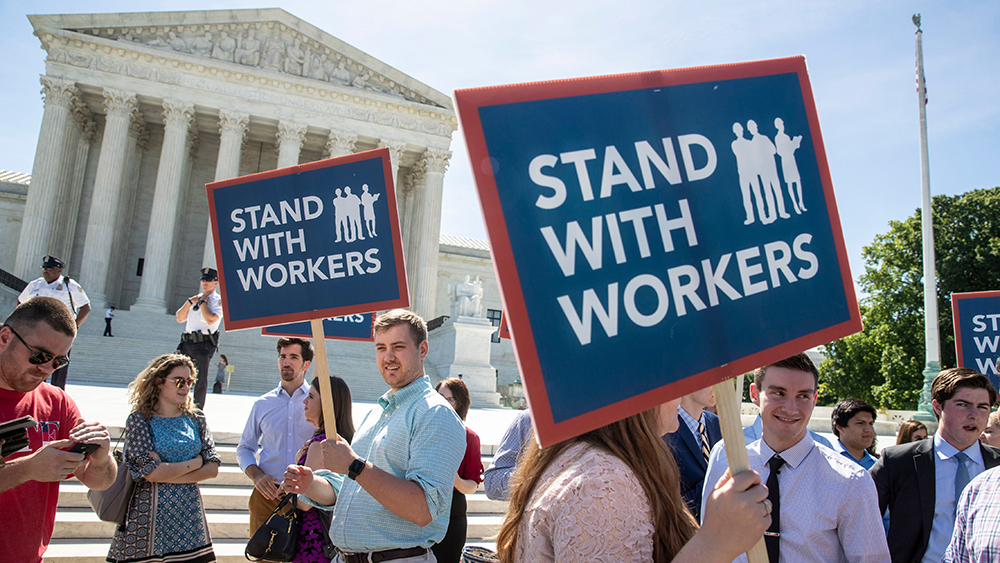Hollywood Condemns Supreme Court’s Union Fees Decision
By Ted Johnson
LOS ANGELES (Variety.com) – WASHINGTON — SAG-AFTRA President Gabrielle Carteris reacted strongly to the Supreme Court’s 5-4 ruling that public sector unions cannot mandate that nonmembers pay fees for collective bargaining, calling the decision “shameful” and a “direct attempt to weaken unions.”
In the opinion issued on Wednesday, the majority of justices said that public sector employees who are not members of a union do not have to pay the fees, concluding that such a mandate violates the First Amendment. An Illinois public employee had challenged the mandate, arguing that it violated the First Amendment, but unions said that such nonmembers still enjoyed the benefits of representation.
Justice Samuel Alito, in the majority opinion, wrote, “This procedure violates the First Amendment and can not continue. Neither an agency fee nor any other payment to the union may be deducted from a nonmember’s wages, nor may any other attempt be made to collect such a payment, unless the employee affirmatively consents to pay. By agreeing to pay, nonmembers are waiving their First Amendment rights, and such a waiver cannot be presumed.”
Hollywood labor unions condemned the decision. Even though it applies only to public sector unions, they predicted that it would undermine the rights of labor overall.
Carteris said that the court “made the wrong decision; a decision in favor of increasing the power of employers at the expense of their workers. Without engaged workers, union protections become more vulnerable. This ruling is a direct attempt to weaken unions, the very organizations who allow workers to speak together as one, to have a voice in their wages, their safety at work, and their healthcare and retirement. The ’s decision directly overturns a decision made by the Court in 1977. Have workers lives improved so much that unions can now be so blatantly attacked? Are workers all better off now? Are employers sharing in their success with all those who make them successful? No.”
She continued, “This shameful decision only serves to strengthen our resolve to find ways to protect working families in this country. Now more than ever as professionals, we must come together and renew our commitment to speak as one. To be strong in the face of all attempts to minimize us. We know that fighting for a better life for you and your family is what unions do. It’s time for unions, and the workers who make them vibrant and strong, to show this court and those who would attack and diminish working people that this is unacceptable. When workers come together, workers win, and that did not change today.”
Matthew Loeb, president of IATSE International, said that this “terrible decision is a sign of our times and the political mess in which we find ourselves. Soon, all working people, not just those in the public sector, will face the ramifications of the Supreme Court’s actions, in the form of diminished bargaining rights and weaker contracts.”
“We should harbor no illusions about this terrible decision: it was the product of raw power politics, not constitutional deliberation,” the guild said. “The Koch Brothers and their hard-right-wing allies have spent hundreds of millions of dollars in recent decades to undermine the ability of working Americans to fight for themselves, to have a voice on the job, to win terms and conditions of employment that make it possible to support a family and pay the bills.”

